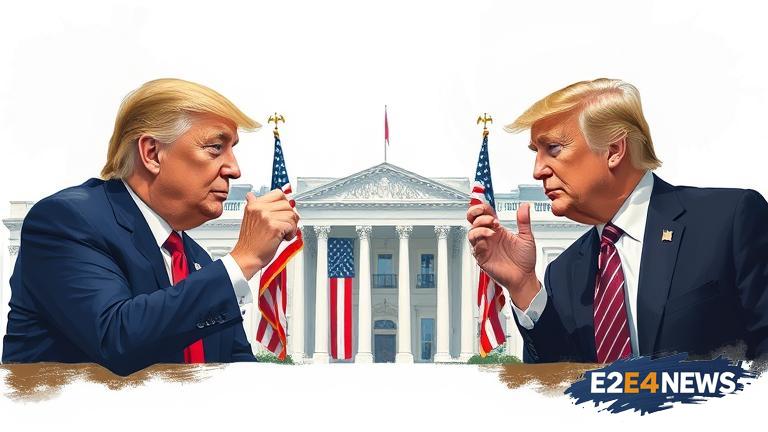The Trump administration’s foreign policy has been a subject of intense scrutiny and debate, with many questioning the consistency and coherence of its approach. Despite the administration’s efforts to project a strong and decisive image, its actions and statements have often sent mixed signals, leaving allies and adversaries alike uncertain about its intentions. The administration’s stance on key issues such as trade, security, and climate change has been particularly inconsistent, with different officials and departments often conveying conflicting messages. This lack of clarity has created confusion and uncertainty among foreign governments, businesses, and other stakeholders, making it difficult for them to navigate the complex landscape of international relations. Furthermore, the administration’s tendency to prioritize domestic politics over foreign policy has led to a series of diplomatic faux pas, including the withdrawal from the Trans-Pacific Partnership and the Paris Climate Accord. The administration’s approach to international institutions and agreements has also been marked by a lack of enthusiasm, with some officials openly questioning the value of these institutions. The mixed signals emanating from the Trump administration have been particularly evident in its dealings with key allies such as Europe and Japan, where the administration’s rhetoric has often been at odds with its actions. The administration’s stance on issues such as NATO and the Iran nuclear deal has been particularly contentious, with some allies expressing concern about the administration’s commitment to these agreements. The administration’s approach to adversaries such as China and Russia has also been marked by inconsistency, with some officials adopting a hawkish tone while others have sought to engage in diplomatic efforts. The lack of clarity and consistency in the administration’s foreign policy has also created opportunities for other countries to fill the vacuum, with China and Russia seeking to expand their influence in regions such as Asia and Europe. The administration’s foreign policy has also been criticized for its lack of attention to human rights and democracy, with some officials downplaying the importance of these issues. The administration’s approach to international development and aid has also been marked by a lack of enthusiasm, with some officials seeking to cut funding for programs aimed at promoting economic development and reducing poverty. Despite these criticisms, the administration has also taken some positive steps, including the launch of a new strategy for Africa and the establishment of a new task force on counter-terrorism. However, the overall impact of the administration’s foreign policy remains uncertain, with many questioning whether its approach will ultimately achieve its stated goals. The administration’s foreign policy has also been marked by a series of high-profile personnel changes, including the departure of key officials such as Rex Tillerson and H.R. McMaster. The administration’s approach to foreign policy has also been influenced by the president’s personal style and preferences, with some officials seeking to accommodate his views while others have sought to push back against them. The mixed signals emanating from the Trump administration have also created challenges for the US Congress, which has sought to assert its own influence over foreign policy. The administration’s foreign policy has also been the subject of intense media scrutiny, with many journalists and commentators seeking to analyze and interpret its actions and statements. Overall, the Trump administration’s foreign policy has been marked by a series of contradictions and inconsistencies, leaving many to question its ultimate goals and intentions. The administration’s approach to foreign policy will likely remain a subject of intense debate and scrutiny in the months and years ahead, with many seeking to understand the implications of its actions for the US and the wider world. The administration’s foreign policy has also raised important questions about the role of the US in the world, with some arguing that its approach marks a significant departure from the traditional US role as a global leader. The administration’s foreign policy has also created opportunities for other countries to re-evaluate their own relationships with the US, with some seeking to strengthen ties while others have sought to distance themselves. The administration’s approach to foreign policy will likely have significant implications for global governance, international trade, and security, with many seeking to understand the potential consequences of its actions.
